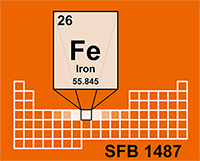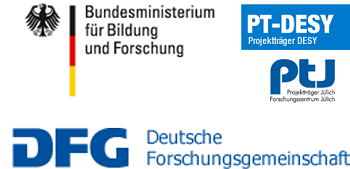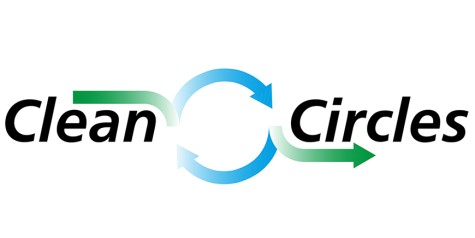The worldwide transition of energy production from mainly fossil fuels to renewable sources needs an efficient system for storage and transport of energy. While hydrogen is an excellent energy carrier specifically for the transportation sector, also large scale solutions are required. In the LOEWE project Clean Circles, iron is investigated as possible energy carrier.
Within the reduction of iron oxides, the energy is stored in form of chemical energy that can be converted back by the oxidation of iron. In consequence, it is required to gain a fundamental understanding of the oxidation and reduction behavior of iron and its oxides.

Iron is a versatile, ubiquitous, cheap and sustainable transition metal with unique properties and high reactivity. Changes in the local environment modulate the intrinsic properties. In most environments, a broad variety of oxidation and spin states is easily accessible. On one hand, this can result in unfavourable or undesirable properties, on the other hand a change in the environment can be used to improve the reactivity in a targeted manner.
The CRC initiative Iron, upgraded! aims at manipulating iron’s environment in such a way that it becomes a selective, versatile and valuable substitute for rare, toxic or critical metals. Three phases are envisioned: (1) Understand Iron, (2) Tune Iron, (3) Optimize Iron. In the first four years, the basic properties of iron and their dependence on the environment will be explored. In the second phase, strategies for a targeted tuning of the coordination sphere will be developed and tested. In the third phase, iron will be optimized with respect to specific properties and an improved stability, selectivity or reactivity. We further aim at transferring new or improved concepts to other 3d-elements.

Proton exchange fuel cells (PEFC) are suggested as important devices for the transportation sector. Currently, platinum based catalysts are used to accelerate the hydrogen oxidation reaction (HOR) and oxygen reduction reaction (ORR). However, platinum is rare and expensive. As most of the platinum is required for the ORR, there are worldwide effords to reduce the required amounts or replace platinum. Non-precious metal catalysts as Fe-N-C are very promising alternatives. Aim of the project is to find a new preparation procedure for Fe-N-C catalysts and suitable stabilization strategies to enable long-term operation on a very good level of activity. Research topics include: Preparation, Activity and Degradation studies in RDE and FC (towards implementation in cars), Structural characterization, In situ and Operando Mössbauer spectroscopy.

Beside automotive propulsion, fuel cells can be used as power supply in stationary applications, as e.g. caravaning. The advantages are more steady state conditions and lower operation temperature. Both aspects are beneficial in terms of long-term stability. Research topics include: Optimization of MEA preparation for lower operation temperature of FeNC, FC activity and stability testing, upscaling of catalyst preparation and MEA size.

Hydrogen will play an important role in our future energy landscape. Beside steam reforming hydrogen can be produced by electrolysis. Specifically, off-grid production of hydrogen via photoelectrochemical water splitting is of future interest. In this PAK we work work on finding new absorber materials and catalysts. Research topics of the EKAT group include: Investigation of the applicability of M-N-C catalysts for the hydrogen evolution reaction, Structure-activity correlations, in situ and operando Mössbauer spectroscopy of water splitting catalysts.
In Metal air batteries, the working principles of batteries (anode) are coupled to the working principles of fuel cells and electrolysers (cathode). While on the anode, the electrode is directly involved in the electrochemical reaction, on the cathode gas diffusion electrodes (GDEs) equipped with catalysts for the oxygen reduction reaction (ORR) and oxygen evolution reaction (OER) are used. To lower the thickness of these GDEs it is desirable to apply bifunctional catalysts that are capable of both ORR and OER at relatively low overpotentials. Aim of this work is to find suitable Non-precious metal catalysts that are applicable for Me air batteries. Working topics include: Identification of suitable preparation strategy, electrochemical testing in RRDE and Me air battery, structural characterization for structure-activity and structure-stability correlations.

The LOEWE project “FLAME – Fermi Level Engineering of Antiferroelectric Materials for Energy Storage and Insulation Systems” investigates how the properties of functional materials can be adjusted via their electronic structure. In our subproject the focus is on characterization of the chemical state of tin or iron in perovskites which are the central materials class of this project.
Interesting perovskites are also tested with respect to their application as bifunctional electrocatalyst in Me air batteries.
We are aiming for a steady decrease of carbon dioxide in our atmosphere. Other then suggesting CO2 as a waste, it might also be considered as source for the preparation of CO (to be used in Fischer-Tropsch) or of hydrocarbons. So far, copper is by far the best performing catalyst to enable a conversion to methane or ethane. Aim of this work is to gain a basic understanding of the applicability of M-N-C catalysts for the electrochemical concersion of CO2. Beside catalytic testing we perform post mortem analysis in order to understand if in the required potential window indeed molecular M-N4 centers remain stable or if a transformation to the metallic state occurs.

In this project a continuous gas-flow reactor will be designed that enables investigation of structural changes as a function of preparation temperature and gas environment by nuclear resonance experiments. This is important to gain more information on the preparation process towards catalysts with high density of active sites. The influence of gas environment gives important insights related to the catalytic processes of activating small molecules.
DFT calculation of molecular system (coop. Poject with Prof. Krewald)


